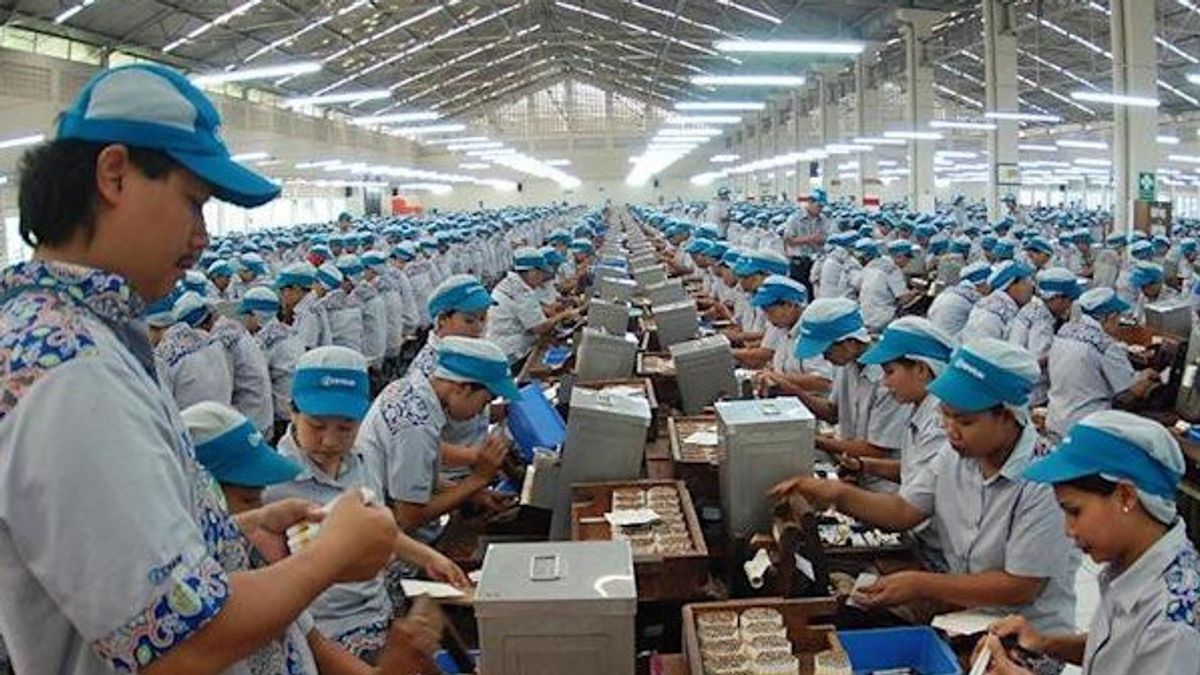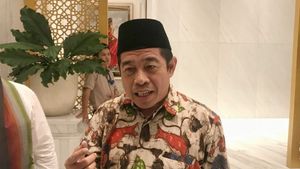JAKARTA - Deputy Chairperson of the Indonesian Chamber of Commerce and Industry for International Relations Shinta Widjaja Kamdani said controlling the COVID-19 pandemic was the main key to preventing mass layoffs in the business and industrial world.
According to him, in the current pandemic, there is no quick solution to prevent layoffs because the need to maintain business must be met first so that mass layoffs can be stopped.
"Therefore, the policy that we feel is the most important at this time is controlling the pandemic as soon as possible so that PPKM can be immediately relaxed and economic activity normalized," he said, quoted from Antara, Thursday, August 5.
In addition, other policies that need to be carried out are pouring countercyclical stimulus (the opposite policy) until the national economic performance is at least 90 percent back to the pre-pandemic performance level.
"What is the form of the opposite stimulus? It can vary depending on the related business sector," he added.
Shinta said that in general what business actors need during PPKM to be able to maintain their workforce is cash flow; reduction of operational expenses such as tax expense, loan interest expense, energy cost; and working capital injections. Thus, ideally there should be stimuli that create these three things.
For cash flow, according to the Deputy Chairperson of Apindo, what is needed is the normalization of economic activity in the community in general.
"So vaccination policies and discipline enforcement of health protocols must be improved and produce stable and permanent conducive pandemic control outputs," he said.
In addition, what needs to be supported by stimuli to boost public consumption, especially the upper middle class, are the PPnBM discount policy or the temporary VAT discount policy.
Furthermore, to reduce business expenses, fiscal and non-fiscal stimuli that have been carried out since last year, such as incentives for personal and corporate income tax, incentives for the Ease of Import for Export Destination (KITE) areas and others.
Meanwhile, for capital, credit stimulus must be expanded and its distribution increased in the real sector, especially since the current supply of liquidity/credit from banks is decreasing even though business actors desperately need working capital.
"Therefore, the effectiveness and realization of financial/quantitative easing stimuli through POJK 11/2020 must be increased so that business actors have sufficient capital to maintain business and employment," concluded Shinta.
Financial Services Authority Regulation Number 11 of 2020 concerning National Economic Stimulus as a Countercyclical Policy for the Impact of the Spread of COVID-19. POJK 11 of 2020 was issued by the OJK to reduce the impact of the economic slowdown due to Covid-19 in the banking sector.
The English, Chinese, Japanese, Arabic, and French versions are automatically generated by the AI. So there may still be inaccuracies in translating, please always see Indonesian as our main language. (system supported by DigitalSiber.id)













